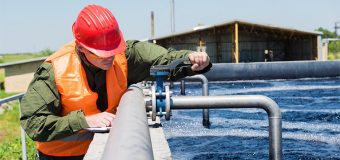
The 200,000-strong population of Banja Luka, the second largest city in Bosnia and Herzegovina, is to enjoy better water supply and wastewater collection thanks to a loan of up to €6 million provided by the European Bank for Reconstruction and Development (EBRD).
The Bank’s loan will be provided under EBRD Green Cities, a strategic framework that addresses environmental and sustainability concerns through a combination of investments in municipal infrastructure, and energy and policy measures.
A Green Cities Action Plan, developed by the city and the EBRD, has identified the inadequate water supply and water quality as urgent priorities to be addressed. Accordingly, proceeds of the loan will finance the upgrade of the water and wastewater infrastructure.
The EBRD loan is part of a €56 million long-term investment plan by the city to strengthen and expand its water and wastewater infrastructure. The plan will improve citizens’ access to high quality drinking water as well as rehabilitate and extend the city’s sewerage network – another of Banja Luka’s wastewater challenges.
The EU is expected to support the project with a grant of €4 million under its Instrument for Pre-Accession Assistance 2020. Austria and Sweden provided technical cooperation funds to finance the Green Cities Action Plan.
Launched in 2016, EBRD Green Cities helps cities to address their environmental issues and improve the quality of life for their residents. To date, 35 cities in the EBRD regions have signed up to the programme. In Bosnia and Herzegovina alone, Banja Luka, Sarajevo Canton and Zenica have joined EBRD Green Cities so far.
Since it began operations in Bosnia and Herzegovina in 1996, the EBRD has invested more than €2.6 billion in 181 projects in the country.
Author: Axel Reiserer
Source: ebrd.com



